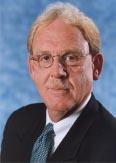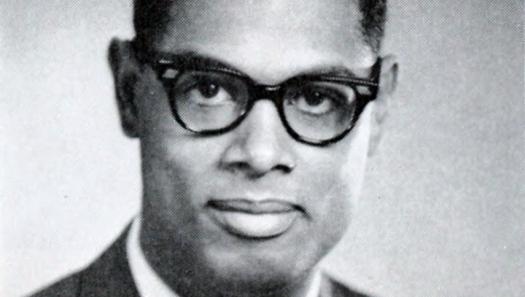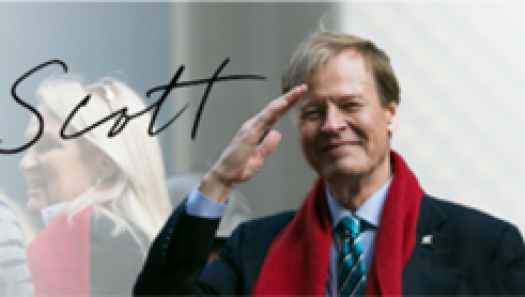WeSalute Awards
TopVet: E. S. Bagley, Jr. / Amtrak
Bernard Edelman

When Stan Bagley joined the Air Force during the height of the Vietnam War, he had a little inkling at how much the esprit de corps of a tight unit would come to mean to him. When his wife, his college sweetheart, was killed after a month of marriage, his buddies at the 1035th Special Field Activities Group provided him with no small measure of aid and comfort.
Stan worked in an Air Force intelligence unit, based first in Alexandria, Virginia, and then at Patrick AFB, Florida. As his four-year hitch was nearing its end in 1973, the camaraderie that had embraced and nurtured him, along with an abiding sense of the honor of service, led Stan to seriously consider making the Air Force a career, going into hospital administration, specializing in casualty staging. With the war winding down, however, he decided to try out civilian life again, because, as Stan put it, 'Why be in a firehouse without a fire?' He hooked up with Amtrak in rail operations and never looked back.
The Air Force’s loss was Amtrak’s gain.
As with so many others who served, the boy Stan Bagley grew up in the military, developed discipline, matured, became a man. The lessons he learned - particularly the importance of teamwork, how what one member of a unit does has to dovetail with what the other members are doing if the team, and the project, are to reach mission success - became an integral facet of his managerial values.
So did the need to understand other people’s values, one of which is the aphorism about doing unto others. In Stan’s version, ‘If you take care of your people, they’ll take care of you.’
In fact, ‘all my military training has paid massive dividends for me in my jobs at Amtrak,' Stan Bagley, who is Executive Vice President of operations and recently served as Acting President and CEO - and the highest-ranking Veteran - at Amtrak, said during a telephone interview.
As he moved up the corporate hierarchy - general superintendent of Amtrak’s Washington Division; assistant to the chief operating officer; director of staff operations and maintenance; superintendent of equipment utilization; vice president and then President of Northeast Corridor operations - Stan Bagley looked to hire Veterans whenever he could. ‘In the rail yards, we do a lot of shift work,' he explained, ‘and we needed people who could adapt easily to the routines, people with self-discipline.’ Folks with military service fit the bill.
So did former soldiers of the Army of the Republic of Vietnam, Laotians, Eritreans, and Cambodians, whom Stan made a special effort to recruit a decade and a half ago. These refugees were good workers, more than qualified to fill the various craft positions on the railroad. Given an opportunity they were denied in their motherland, many excelled, and continue to be railroad employees today.
In his current position, Stan has responsibility for promoting efficiency and consistency in railroad operations and service delivery. He is at the top of the operational pyramid: the safe and on-time operation of more than 265 Amtrak weekday trains nationwide, along with eight commuter rail systems, are in his bailiwick, as is Amtrak's police force.
When he ran Amtrak's Northeast Corridor, Stan led the system's most successful - and busy - unit through a time of significant growth, realizing ticket revenue increases of 45 percent, and capped by the November 2000 launch of America's first high-speed rail service, the Acela Express.
A 1969 graduate of the University of Tampa, Stan holds a Bachelor of Science degree in business administration. He also completed the Business School Program for Management Development at Harvard and the Business Executive Development Program at the University of Virginia. The Massachusetts native is also chairman of the board of directors for the Washington Terminal Company, which encompasses the tracks and facilities supporting intercity and commuter train operations at Union Station in Washington, D.C.



